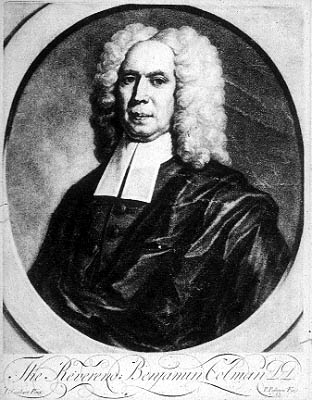Did you know that the first Jewish instructor at Harvard was a slaveowner? The following is from an article that appeared in the Wall Street Journal.
By Ira Stoll April 28, 2022

“The first Jew at Harvard was a slaveholder. That’s the bombshell, so far as I can tell, buried in the appendix of the new report “Harvard & the Legacy of Slavery,” released by the university this week.
The report’s “list of human beings enslaved by prominent Harvard affiliates” includes the “enslaved persons” Cuffy and Cicely, owned by Judah Monis. Monis lived from 1683 to 1764 and was an instructor in Hebrew at Harvard College from 1722 to 1760. In researching this article, I discovered a third possible slave, “my Negro child Moreah,” mentioned in Monis’s 1760 will.
I first encountered Monis’s name more than a decade ago while working on a biography of the American revolutionary leader Samuel Adams. Part of the required curriculum for Harvard students from 1735 to 1755 was the study of Hebrew grammar from a textbook written by Monis. That might seem like an obscure detail, but it’s of historical significance because Harvard students in that era included Samuel Adams, his cousin and the future President John Adams, and their fellow signers of the Declaration of Independence John Hancock, Robert Treat Paine, William Williams, and William Ellery.
Monis had converted to Christianity from Judaism one month before joining the Harvard faculty. In a 2018 article for the Harvard Divinity Bulletin, Jon D. Levenson writes that the conversion had been a condition of hiring. The baptism took place in Harvard Yard. “Although doubts about Monis’s sincerity in converting have long been raised, I am certain that he was absolutely sincere in his desire for a Harvard professorship,” Mr. Levenson writes.
The footnotes in the Harvard slavery report list, as part of the evidence for Monis’s slaveholding, the records of the Church of Christ at Cambridge. As a Jewish reader, I’m tempted to interpret this somehow as a kind of poetic justice, with Monis being posthumously punished for abandoning our faith.
That’s a bit too convenient, though. If it had turned out that Monis were secretly operating an underground railroad, voluntarily setting his slaves free, or advocating abolition, I’d be happy to claim him for the Jews. While traditional Judaism, like other religions, frowns on those who adopt alternative faiths, it also still considers as a Jew anyone, like Monis, who was born to a Jewish mother.
The question that goes beyond mere sectarian interest is what the news about Monis means for the story that historians have been telling about the influence of Christian Hebraism in the American Revolution. Samuel Adams described the British as “taskmasters” and likened the American revolutionaries to the children of Israel fleeing slavery in Egypt. In a speech to the Continental Congress in 1777, Samuel Adams noted that they had told the world of their determination “to die freemen, rather than to live slaves.” The Declaration of Independence spoke of how all men are created equal, “endowed by their Creator” with the right to liberty.
It’s one thing to reckon with hypocrisies in the stories of plantation-owning Virginians like Thomas Jefferson and George Washington. That’s old news. But Samuel Adams’s Harvard Hebrew professor? That hits closer to home for those who consider Boston to be the cradle of liberty.
Doubtless some will see it as additional evidence that the whole enterprise—18th-century Harvard, the American Revolution, the Bible—was rotten to the core. But there is an alternative reading.
If the future American revolutionaries were diligent students of the Hebrew Monis taught, they would have been able to parse with some care the text of Exodus. At Sinai, after God identifies himself as having “brought you out of Egypt, the house of slavery,” he issues the commandment that the children of Israel obey the Sabbath in part by not having their own slaves work on the seventh day.
In experiencing the irreconcilable contradiction between the reality of slave ownership and the ideal of freedom, in other words, the American revolutionaries weren’t unlike the children of Israel. They were following in their footsteps.
If Monis’s conscience was insufficiently stirred by the Hebrew text to do good, his students and their students would do better over time. It doesn’t absolve him of culpability. But let it not be forgotten that his students used the Hebrew he taught to help create, in America, a story of freedom that surely ranks with the Bible as one of the great slavery-toppling narratives of all time.”